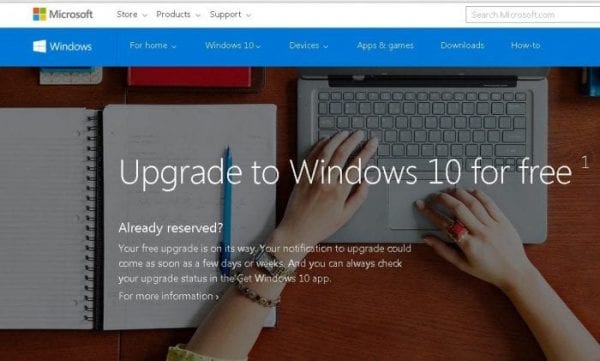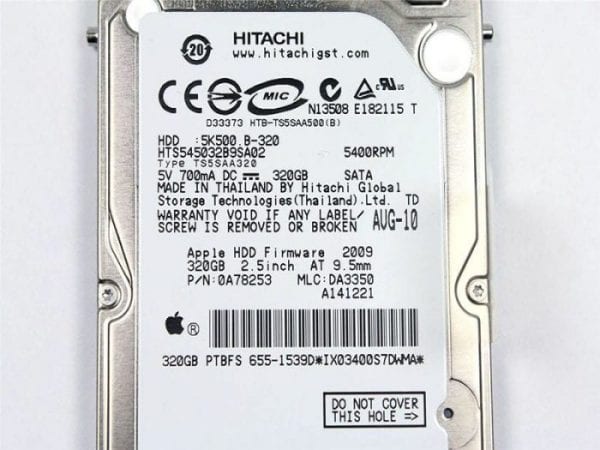5 things that makes running a small or micro-business a lot easier.
Doing these 5 things makes running a small or micro-business a lot easier.

1. Get a 2nd computer or iPad with your emails
and business documents on it, and stop
stressing out when your main one breaks down!!

Once a week my staff get stressed out by a demanding micro-business owner who has computer issues and does not have a spare computer or a backup of their data.
They make it very clear to us that they cannot earn a living because there whole business depends on having this computer running 24/7
To those clients (I am sure they know who they are!!) I say …
… CHILL-OUT, GET A LIFE …. and a spare computer
Think of a spare computer like installing an aircon in the spare bedroom. 90% of the time you or your guests won’t notice it is there but on that rare 10% of the time on a February night, you/they will think it’s worth its weight in gold.
The spare computer doesn’t need to be flash and can even be an iPad but it should be sturdy enough and have enough memory and storage for you to be able to run your business in an emergency.
Setup your documents to be stored in OneDrive, Dropbox or iCloud and setup your emails on a business-grade email platform such as Office 365 Business – Premium or Exchange Online, in this way they will be spam-free, safe, secure and accessible 24/7 from any computer, anywhere in the world.
Also upgrade to the cloud version of your preferred accounting package (MYOB, Xero, Quickbooks etc) so accounts and invoicing can also be run from any computer with a web browser.
If you already have Microsoft Office, chances are you already have 1TB (1,000 MB) of cloud storage included in your subscription** If not, it can be purchased from $91*** per year.
** Microsoft Office 365 Home, Personal, Business, Essentials, Premium and higher include 1TB OneDrive storage
*** Microsoft OneDrive For Business (1TB Storage)
2. Stop using FREE (@gmail @yahoo @hotmail) or ISP (@bigpond @iinet @optusnet) email addresses for business. Use your own business domain name instead.

You or your business can own your own domain name (ie @mybusiness.com) from only $25 per year, It forms part of your intellectual property and contributes to the goodwill value of your business. If you have a website, you probably already own a domain, start using it for your business emails also.
FREE or ISP based email addresses are a LIABILITY and a THREAT to your business. They can be taken away from you at any time, you can lose all your emails, folders, contacts and history…. and you have NO LEGAL RECOURSE, because you do not and have never owned them.
The small print in the contract you are completely unaware of, issued by your email provider, gives THEM the power to suspended or withdrawn access to your email account, at any time and for any reason, thus potentially ruining your business and rendering it inoperable and worthless.
We are not suggesting dropping the FREE or ISP account you have been using for years but start to wean customers away from it by forwarding incoming emails to your own business domain and then reply to them using that business domain. Your customers will get used to replying to your business domain and over time will stop using that FREE/ISP address.
People often stay with ISP’s (Telstra, Bigpond etc) because they fear losing access to that email address.
What they do not know is that they can pay Telstra (@Bigpond, @Telstra) iiNet/TPG (@iinet, @westnet, @tpg), Optus etc. around $20 to $25 a year just to keep that email address alive.
You are then FREE to stop using that ISP for Internet and shop-around for the best package or simply use the internet on your mobile or elsewhere)
You can have your own domain and a hosted Microsoft Exchange Email address and mailbox for only $97.60 per year*
*$25 for .com domain plus $6.05 per month for Microsoft Hosted Exchange 50GB Mailbox or $35 per year for .com.au domain.
This has become a big issue in the UK of late according to this BBC article titled
Email address charges branded ‘daylight robbery’. Wendy Small, has been charged £160 to keep her old BT email address since she switched providers two years ago. Ofcom is writing to broadband companies to ask why some people are having to pay to keep old email addresses. https://www.bbc.com/news/business-51571275
3. Do not use your main email for marketing or email shots.

It is very easy for a disgruntled customer to report you for sending them “spam” or “unsolicited” emails.
This can have your email address suspended or blacklisted.
If you get blacklisted and you use a FREE or ISP email address, you may lose the right to that address and be suspended or have your account deleted forever.
If you own your own domain name, there are steps you can take to be removed from the blacklist and continue to use the account.
However, if you keep repeating the spamming offence you can be fined up to $2m per day for breaching the Spam Act 2013, as were Optus earlier this year
Using a third-party marketing/ mail out company such as Mailchimp, overcomes this ever happening.
4. Protect your data and Passwords

It is essential you protect every online account with two-factor (2FA)or multi-factor authentication (MFA) to stop your accounts being hacked, defrauded and locked-out from. In addition, make sure your data is stored in at least 2 other locations.
Ideally backups or copies of your data should be made locally (to an external HDD or NAS drive) and to a cloud backup source (Elephant Drive, OneDrive, Sharepoint, Dropbox, iCloud etc)
If you get hacked or your data becomes encrypted, the criminals may well get access to one backup, but are unlikely to get both, allowing you to continue working.
5. Protect your business against the inevitable

If you only have one business insurance policy make sure it includes Cyber-Insurance.
Cyber Insurance will compensate your business for loss of income and rectification costs in the event of it experiencing a cyber-attack such as identify theft, data encryption (Ransomware) or a Phishing attack (stolen or compromised credentials such as stolen passwords) leading to financial loss.
- Email scams cost Australian businesses more than $60 million in lost revenue and time in 2018.
- 60% of hacking-related data breaches involved stolen or compromised credentials, such as passwords.
- 59% of Australian organizations have their business interrupted by a cyber breach each month see https://staysmartonline.govcms.gov.au/sites/default/files/SSOW_SME%20Factsheet_A4_0.pdf
Contact your Insurance company or broker and make sure your business insurances cover you for Cyber Attacks (Cyber-Insurance) as well as the usual public-liability, professional-indemnity etc.








